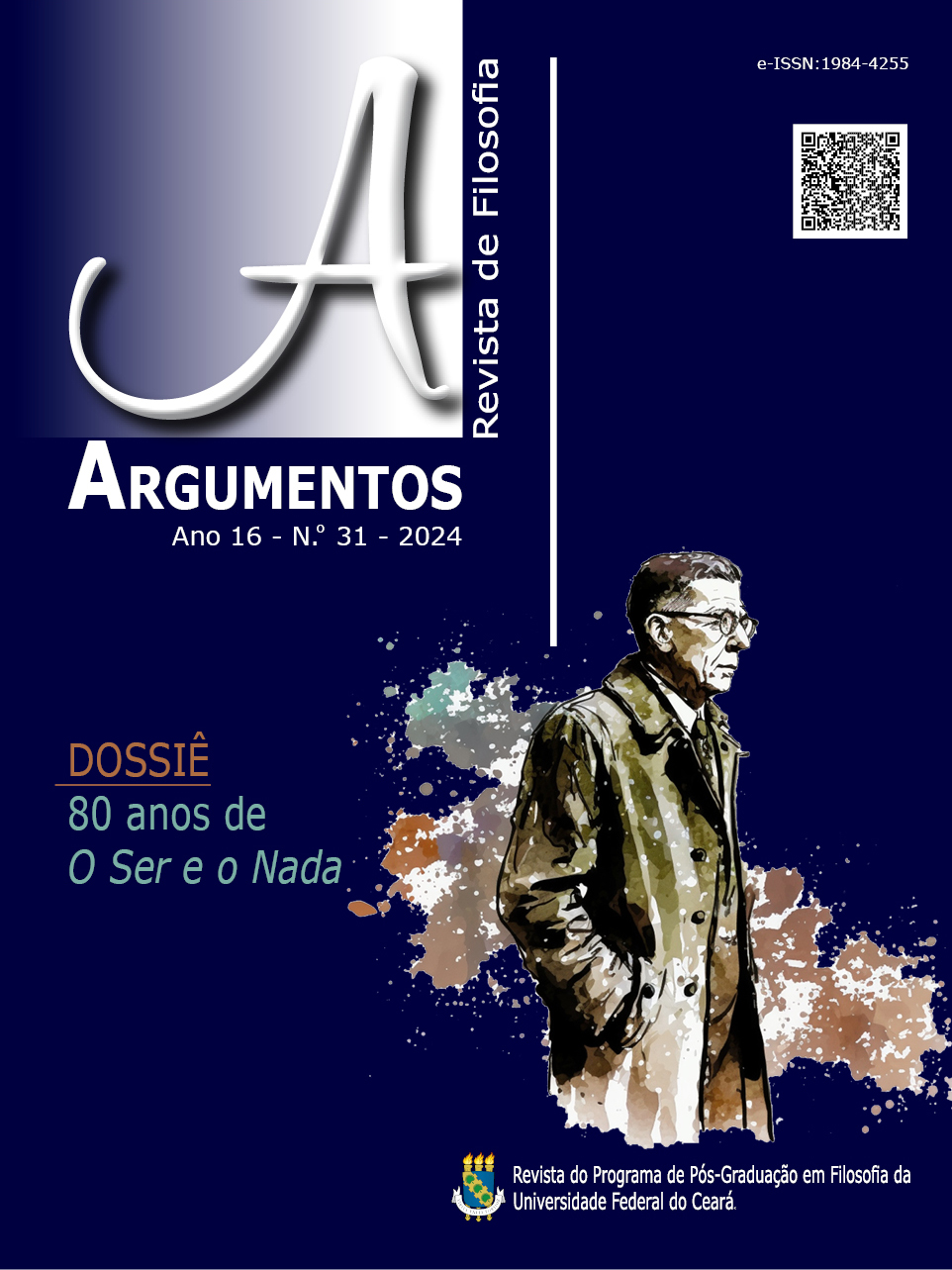The same and the other: Sartre and bad faith
DOI:
https://doi.org/10.36517/Argumentos.31.10Keywords:
Sartre. Bad faith. Contingency. Creation. Culture. Diagnosis.Abstract
Based on the notion of bad faith, the article seeks to lay the foundations for a diagnosis of contemporaneity, having as an index, on the one hand, the lack of human determination and, on the other, the effectiveness of the world.
References
NORBERTO, M. S. A impertinência de uma ética sartriana. Veritas, Porto Alegre, v. 64, n. 3, p. 1-20, jul./set. 2019.
NORBERTO, M. S. O drama da ambiguidade – a questão da moral em O Ser e o Nada. São Paulo: Edições Loyola, 2017.
NORBERTO, M. S. 2021. Sartre e a genealogia. O que nos faz pensar, Rio de Janeiro, v. 29, n. 48, p. 190-211, jan./jun. 2021.
SARTRE, J-P. Alberto Giacometti – Textos de Jean-Paul Sartre. Tradução de Célia Euvaldo. São Paulo: WMF Martins Fontes Editora, 2013.
SARTRE, J-P. A questão judaica. Tradução de Mário Vilela. São Paulo: Editora Ática, 1995.
SARTRE, J-P. As moscas. Tradução de Caio Liudvik. Rio de Janeiro: Editora Nova Fronteira, 2005.
SARTRE, J-P. A transcendência do ego – Esboço de uma descrição fenomenológica. Tradução de Pedro M. S. Alves. Lisboa: Edições Colibri, 1994.
SARTRE, J-P. O ser e o nada – ensaio de ontologia fenomenológica. 21. ed. Tradução de Paulo Perdigão. Petrópolis: Editora Vozes, 2012.
SARTRE, J-P. Théatre. Paris: Éditions Gallimard, 1962.
Downloads
Published
Issue
Section
License
Argumentos magazine is licensed under an International Creative Commons Attribution License.
The Magazine uses CC BY inclusion
1) The authors retain the copyright granted to the magazine or the right to initial publication, with the work regularly licensed under the Creative Commons Attribution, which allows the sharing of the work with acknowledgment of authorship and initial publication in this magazine.
2) The authors are authorized to contract additional applicable contracts, for non-exclusive distribution of the version of the work published in this journal (for example, publication in the institutional repository or as a chapter of the book), recognition of authorship and initial publication in this journal.
3) Authors are authorized and encourage to publish and distribute their work online (for example, in institutional repositories or on their personal pages) at any time before or during the editorial process, as they can generate productive changes, as well as increase the impact and reference of published work.




.jpg)










._._3.png)
1.jpg)
._._._.png)
